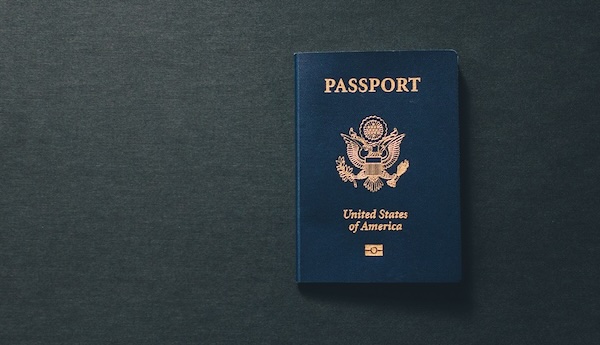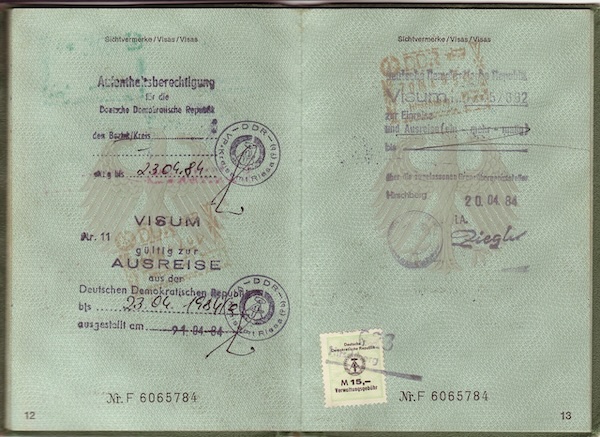What happens if you lose your passport
Posted by Natvisa Content Team | Updated on Nov 20, 2024
Being prepared for losing a passport while traveling can help minimize issues.
- Common causes: Misplacing it after frequent use, damaged bags, or forgetting it at hotels.
- Consequences: Travel delays, identity theft, and difficulty accessing money.
- What to do: File a police report, visit the embassy, and get a temporary passport.
- Prevention: Keep the passport in a secure spot and check it regularly.
Many travelers prefer not to dwell on the potential challenges they might face during their trips, fearing it will add unnecessary stress. However, being prepared for the unexpected can help ensure a smoother experience, regardless of what happens. By anticipating possible issues, travelers can better manage difficult situations and prevent minor inconveniences from turning into major problems.

Losing a passport
Losing a passport is one of the most frustrating things that can happen while traveling. It’s important to know what to do if this happens and understand the ways passports can be lost, so travelers can take steps to prevent it.
How passports get lost
Passports can go missing in a variety of ways, each scenario unique to the traveler’s experience. Commonly, travelers might take out their passport, place it down, and forget to pick it back up. This happens more frequently in countries where travelers must regularly show their passport for identification, increasing the chance of misplacing it.
Another way passports are lost is due to faulty bags or clothing. A tear in a pocket or backpack can cause the document to slip out unnoticed. Regularly checking baggage for wear and tear can prevent such accidents.
Sometimes, the loss occurs due to a lack of communication when traveling in a group. It’s essential to clearly assign responsibility for carrying important documents like passports to avoid confusion. Miscommunication can easily lead to a passport being left behind.
Additionally, travelers often leave their passports in hotel safes or with the concierge and forget to retrieve them before checking out. Some even lose their passport before their trip begins, often discovering it missing while packing or right before departure.
Consequences of losing a passport
The implications of losing a passport vary depending on when and where it happens. If a traveler loses their passport before leaving their home country, they won’t be able to travel internationally until it’s replaced. The process usually requires reapplying for a new passport, which can take time, especially if expedited services are not available.
If the passport is lost abroad, the traveler won’t be able to leave the country until the situation is resolved. Many countries also require travelers to carry their passport for identification, making it difficult to continue exploring until a replacement is obtained. Additionally, financial transactions, such as accessing money through a bank, may be hindered without the passport.
One of the most serious risks of a lost or stolen passport is identity theft. A stolen passport can be used to assume the traveler’s identity, apply for credit cards, or commit fraud, creating long-term complications for the original passport holder.
What to do if a passport is lost
The first step upon realizing a passport is lost is to search thoroughly, especially if the loss occurs at home. Travelers should start searching well in advance of their trip. Once a passport is officially declared lost, it can no longer be used, even if found later, so searching before initiating the replacement process is critical.
If the passport is lost abroad, it’s important to act quickly. After checking luggage and retracing steps, the traveler should contact local authorities to file a police report, which will be needed when visiting their country’s embassy or consulate to apply for a replacement or emergency travel document.

Getting a temporary passport
With the police report in hand, travelers must visit the nearest embassy or consulate for further instructions. They may be issued a temporary passport or emergency travel document, depending on their circumstances. These documents are typically valid only for a limited time, allowing the traveler to return home. Once home, they will need to apply for a full replacement.
Should you continue traveling after losing a passport?
In most cases, travelers can continue their trip after dealing with the lost passport. However, they should not proceed without reporting the loss and consulting with the local authorities. In some cases, such as when a traveler is headed to a major city soon, they may be able to continue their journey and visit the embassy when they arrive.
For those planning to visit multiple countries, it’s important to notify the embassy about their upcoming travel plans, as this may affect how the lost passport situation is handled.
Tips to make the process easier
Carrying notarized or official copies of a passport while traveling can simplify the replacement process. If travelers opt to do this, they should store the copy separately from the passport itself, ensuring that both aren’t lost together.
How to prevent losing a passport
Savvy travelers take several precautions to avoid losing their passports. First, they designate a specific place for their passport, such as an inner pocket or dedicated case. This habit makes it easy to check whether the passport is where it should be.
Travelers also weigh the decision to carry their passport or leave it in a hotel safe, depending on their location and accommodations. If carrying it, they should use a secure method, such as a hidden pocket or a passport holder worn close to the body.
Finally, travelers should check the location of their passport regularly, whether it’s with them or stored in a hotel. This simple step ensures that if the passport is lost, it’s discovered quickly and can be dealt with promptly.
Have questions? Contact an Natvisa expert right away
 This content has been reviewed
This content has been reviewed
The content on this page has undergone a thorough review by a Natvisa expert, ensuring its accuracy, relevance, and quality. Its important to always check with relevant authorities as entry policies can change.
 This content has been reviewed
This content has been reviewed